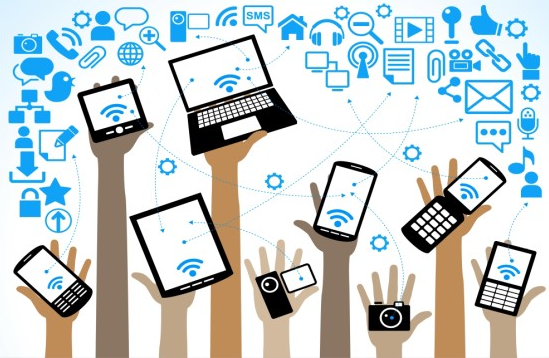Digital fluency is a combination of:
- digital, or technical competence. Being able to understand, select and use a variety of technologies and technological systems.
- digital literacy: Intellectual capabilities, which include being able to read, create, evaluate, make judgements and apply technical skills while doing so;
social competence, or dispositional knowledge: the ability to be able to relate to others and communicate with them effectively.

Why we all need to be digitally fluent?
The outcome of being digitally fluent relates to issues of responsibility, equity and access.
We all need to be able to fully participate in a digitally-enabled education system and in an increasingly digitised society. If we work with fluency in the way we use technologies, we are able to keep ourselves safe online and enjoy the full advantages of online opportunities such as being able to work from home, manage your finances, or be part of our local community).

A digitally fluent student:
- Knows where and how to find and access information quickly and accurately
- can critique the relevance and accuracy of information being accessed
- is an a capable producer of digital content understands and demonstrates how use digital technologies responsibly including – digital security (self-protection), copyright.
According to research collaborated by the US Department of education in 2002, the framework of a twenty-first student outcomes can be summarised into four major areas :
- Core Subjects and 21st Century Themes
- Learning and Innovation Skills
- Creativity and Innovation
- Critical Thinking and Problem Solving
- Communication and Collaboration
- Information, Media and Technology Skills
- Information Literacy
- Media Literacy
- ICT Literacy

References –
Howell, J. (2012). Teaching with ICT: Digital pedagogies for collaboration & creativity. South Melbourne, VIC: Oxford University Press.
White, G. (2013) Australian Council for Educational Research. Digital fluency : skills necessary for learning in the digital age. Retrieved from: http://research.acer.edu.au/cgi/viewcontent.cgi?article=1006&context=digital_learning
Ministry of Education New Zealand. Teaching digital fluency. ELearning tiki, Retrieved from: http://elearning.tki.org.nz/Teaching/Digital-fluency
Sociaens Blog (2011) Retrieved from: http://www.socialens.com/blog/2011/02/05/the-difference-between-digital-literacy-and-digital-fluency/
Images retrieved from:
https://theclassroomkelpie.files.wordpress.com/2016/04/consulting.jpg?w=295&h=295
https://mathematicsleadership.files.wordpress.com/2015/02/ed-tech.jpg
https://eneretlis.files.wordpress.com/2015/05/digital-fluency-3.jpg?w=300&h=195